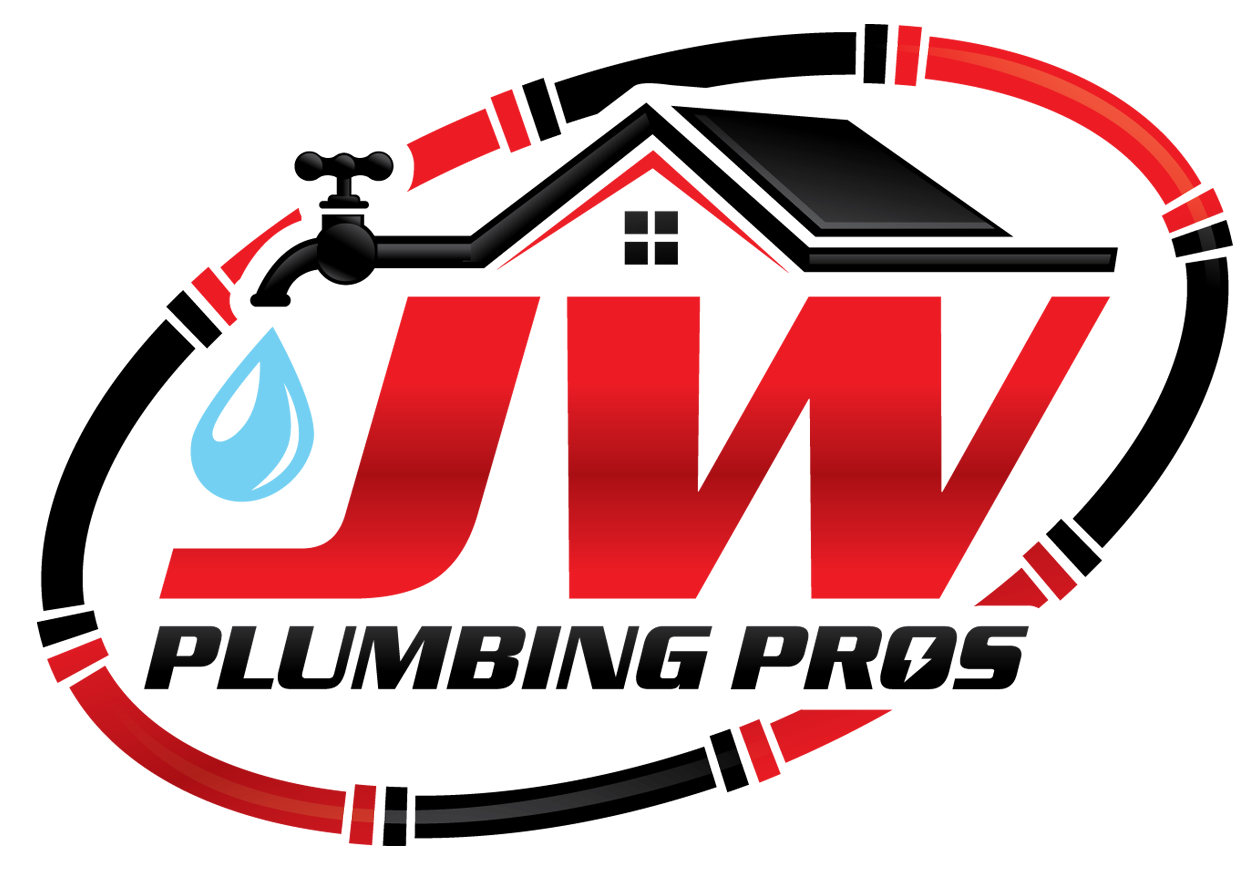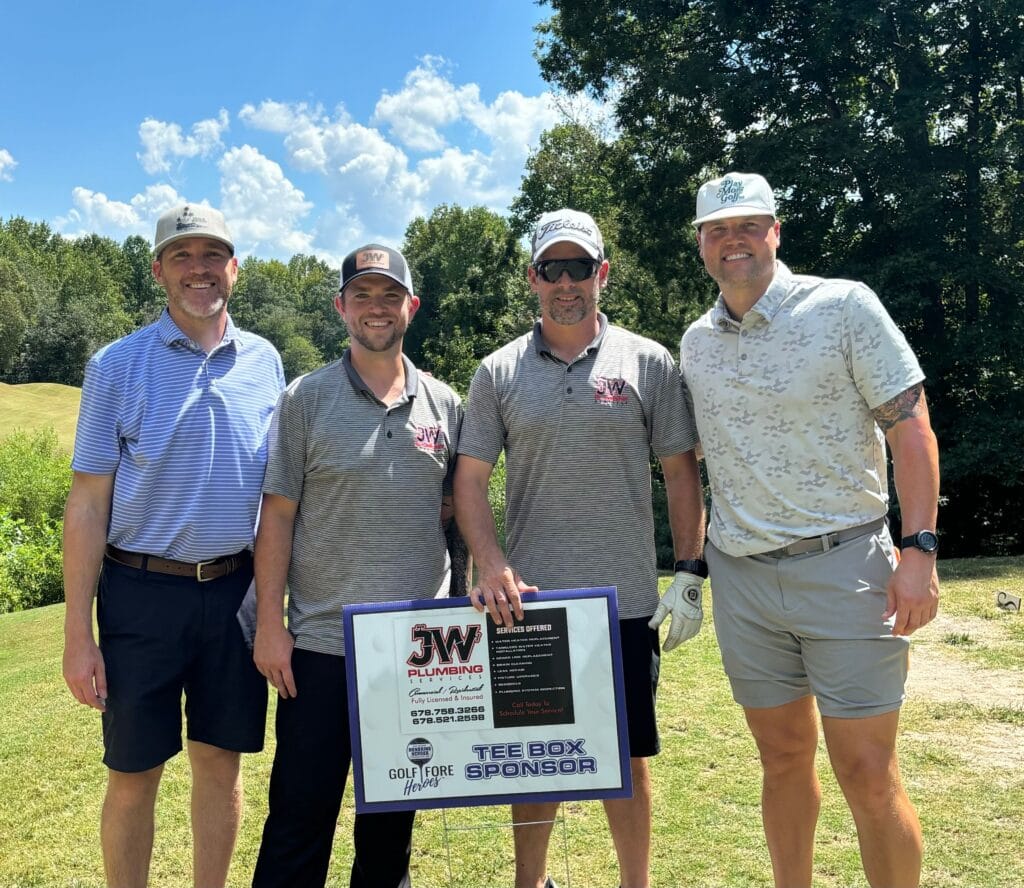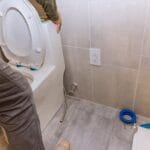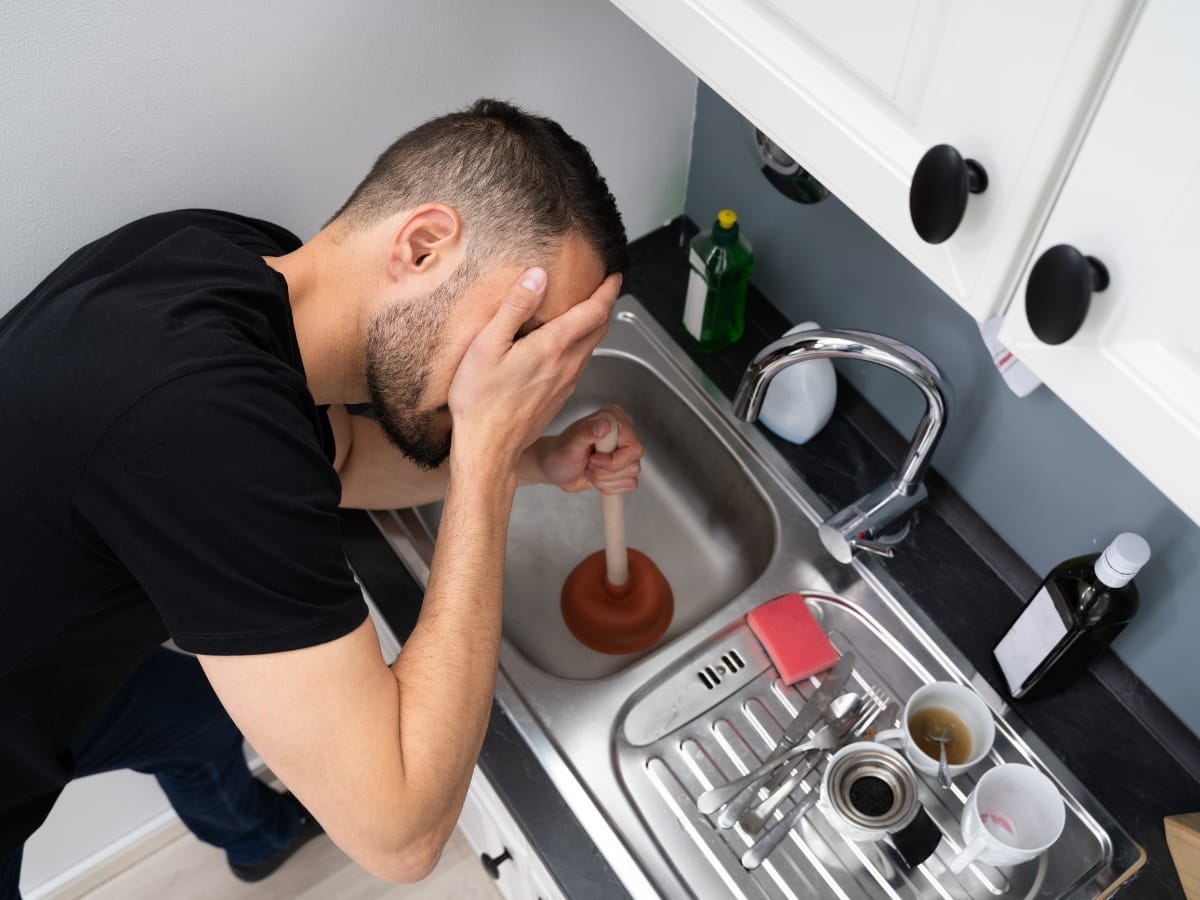Dealing with recurring drain clogs is more than just an inconvenience—it’s often a sign of a deeper issue within your plumbing system that simple store-bought solutions can’t fix. Whether it’s stubborn hair and soap scum in the bathroom, grease buildup in the kitchen, or even tree roots invading your main sewer line, these persistent blockages can lead to slow drainage, unpleasant odors, and potential water damage if left unaddressed. In this guide, we’ll explore the common causes behind frequent clogs, provide practical steps you can take to prevent them, and explain when it’s time to call a professional to diagnose and resolve the problem for good.
What Are Recurring Drain Clogs and How Can You Spot Them?
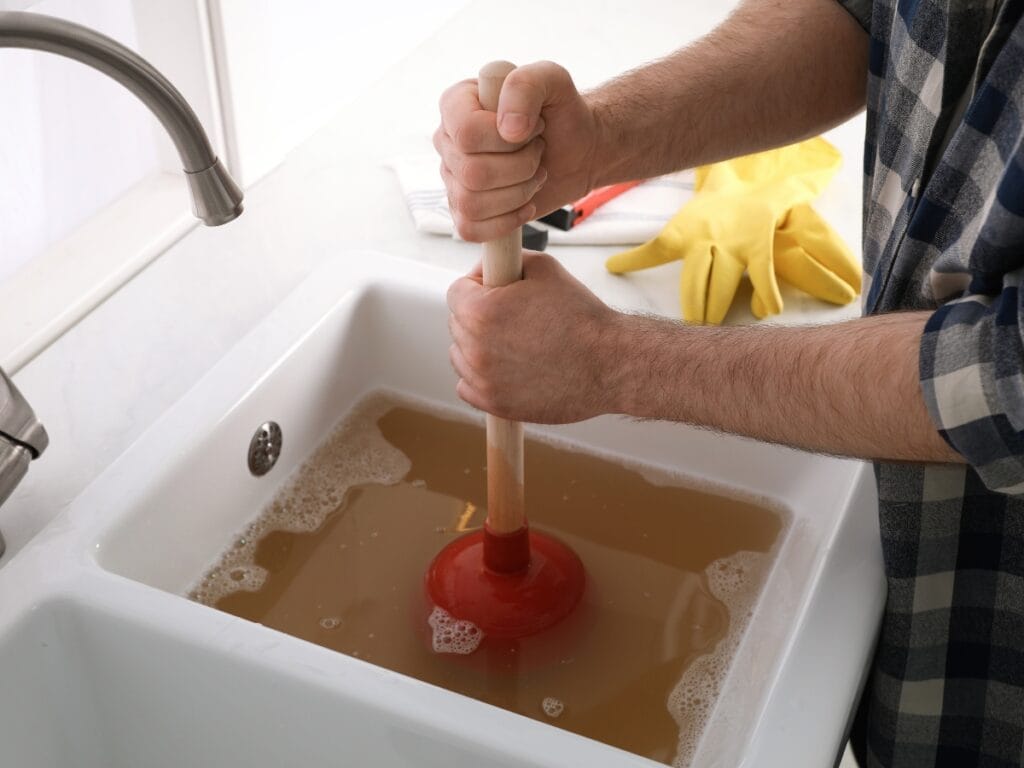
Recurring drain clogs are blockages that come back repeatedly, often within a few days or weeks after being cleared. When this happens, it usually means the main issue, like buildup, pipe damage, or intrusion, hasn’t been fully addressed. Understanding recurring drain clogs early helps prevent long-term damage, messy backups, and costly plumbing repairs.
Aside from slow drainage, there are other warning signs that a clog is returning. Gurgling noises from your pipes, unpleasant odors from drains, or water pooling around fixtures are early indicators that something deeper is wrong. Catching these signs early allows homeowners to take preventive steps before a small issue turns into a full-scale plumbing emergency.
What Exactly Is a Recurring Drain Clog?
A recurring drain clog happens when an obstruction keeps coming back, even after you’ve cleared it. Temporary fixes, like plunging or using drain cleaners, may remove surface buildup, but they don’t eliminate the real cause. Grease, soap residue, food particles, hair, or even invasive tree roots can create repeated blockages if not completely removed. In some cases, damaged or poorly sloped pipes allow debris to collect in the same spot, leading to constant re-clogging.
The key to stopping these blockages is identifying what’s causing them in the first place. Without addressing the root problem, the obstruction will continue to form and worsen over time, resulting in frequent frustration and potential pipe damage.
What Are the Common Signs of Recurring Drain Clogs?
Slow-draining sinks, tubs, or showers are among the first signs that a clog is reforming. You might also notice bubbling or gurgling sounds when flushing the toilet or running the dishwasher. Persistent foul smells coming from drains, even after cleaning, often indicate trapped debris or stagnant water. Another telltale sign is water backing up when multiple fixtures are in use.
These symptoms show that water isn’t moving freely through your plumbing system. Ignoring them can lead to more serious problems, including leaks and water damage. Paying attention to these early warnings helps you act before the issue becomes more expensive to repair.
How Do Recurring Clogs Affect Your Plumbing System?
Recurring drain clogs do more than slow drainage; they can cause long-term harm to your pipes. When water pressure builds behind a blockage, it strains joints and weakens seals. Over time, this pressure can lead to cracks, leaks, or even burst pipes. Standing water trapped inside also promotes corrosion and mineral buildup, which restricts flow and shortens the lifespan of your plumbing.
The longer recurring drain clogs go unresolved, the greater the risk to your system’s integrity. Addressing them promptly through proper maintenance and inspection keeps your pipes working efficiently and protects your home from costly damage.
7 Common Causes of Recurring Drain Clogs in Northwest Georgia HomesDrain Clogs in Northwest Georgia Homes?
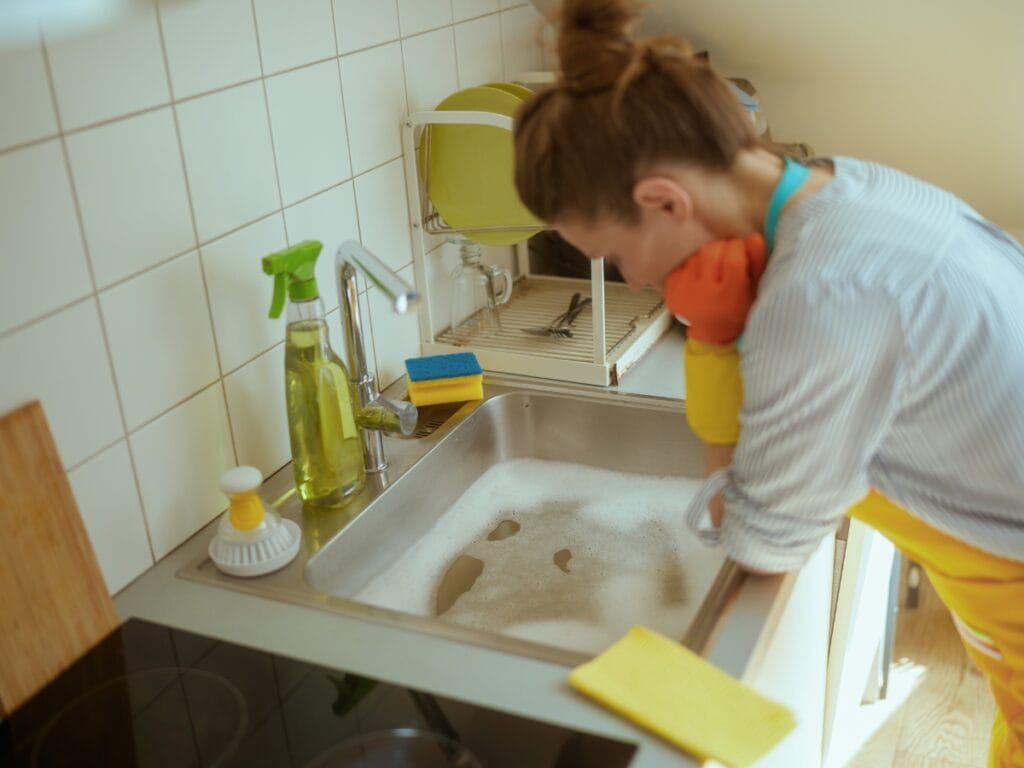
Recurring drain clogs are common in Northwest Georgia because of a combination of regional and household factors. The area’s hard water leaves mineral deposits that gradually restrict pipe flow, while tree roots from native species like oak and maple frequently invade underground lines. Everyday habits, such as pouring grease down the kitchen sink or flushing non-degradable items, also contribute to repeated blockages.
These recurring drain clogs usually point to a deeper plumbing issue that needs more than a quick fix. Understanding the cause helps homeowners decide when maintenance, cleaning, or professional inspection is necessary to prevent future buildup.
How Do Grease, Fat, and Oil Cause Kitchen Sink Clogs?
Grease, fat, and oil solidify once they cool inside your pipes, sticking to the walls and trapping bits of food or residue. Over time, these sticky layers create a rough surface that collects even more debris. The buildup continues until water flow slows down or stops entirely.
This kind of clog can’t be permanently cleared with chemical drain cleaners because the residue tends to redeposit along the pipes. Avoiding grease disposal down the drain and occasionally flushing the line with hot water can help reduce recurring blockages.
Why Do Hair and Soap Scum Build Up in Bathroom Drains?
Bathroom drains frequently clog because hair combines with soap scum and mineral residue to form dense, fibrous mats. These tangles are stubborn and often sit in P-traps or just below the drain opening. Each time water runs through, it pushes some debris further down the pipe, creating a partial clog that eventually turns into a complete blockage. Regular drain screens and monthly cleaning with enzyme-based solutions can help prevent buildup and keep drains flowing smoothly.
Can Tree Roots Cause Main Sewer Line Clogs?
Yes. Tree roots are one of the most damaging causes of recurring drain clogs in older Northwest Georgia homes. Small cracks or gaps in aging sewer pipes allow moisture to escape, attracting roots that grow toward the water source. Once inside the pipe, roots multiply, forming thick tangles that block or break the line entirely. This problem usually requires mechanical root removal or hydro jetting, followed by an inspection to confirm whether the pipe needs repair or replacement.
How Does Hard Water Lead to Mineral Buildup and Pipe Blockages?
Northwest Georgia’s hard water is rich in calcium and magnesium. As water moves through your pipes, these minerals crystallize and stick to the pipe walls, forming a layer of scale. The buildup gradually narrows the pipe’s diameter and makes it easier for grease, soap, and sediment to cling to the surface. Over time, this combination creates recurring clogs that are difficult to remove without professional descaling or water softening solutions.
What Non-Flushable Items Commonly Cause Toilet and Drain Clogs?
Wipes, paper towels, feminine hygiene products, cotton swabs, and dental floss are some of the most frequent offenders. These materials don’t break down like toilet paper and instead get caught in pipe bends, creating clogs that trap other debris. Once they accumulate, recurring blockages become inevitable, especially in older plumbing systems.
How Do Damaged or Improperly Installed Pipes Contribute to Recurring Clogs?
Misaligned joints, sagging sections, or corroded pipes create low spots where water slows down and debris settles. Each flush or drain cycle adds more buildup, allowing clogs to return even after cleaning. Correcting the slope or replacing the damaged section is often the only way to eliminate the issue completely.
By identifying what’s causing recurring drain clogs, homeowners in Northwest Georgia can take targeted steps to prevent them. Whether it’s grease buildup, mineral scale, or tree roots, tackling the source of the problem early helps protect your plumbing system and extend its lifespan.
How Can Homeowners Prevent Recurring Drain Clogs with DIY Maintenance?
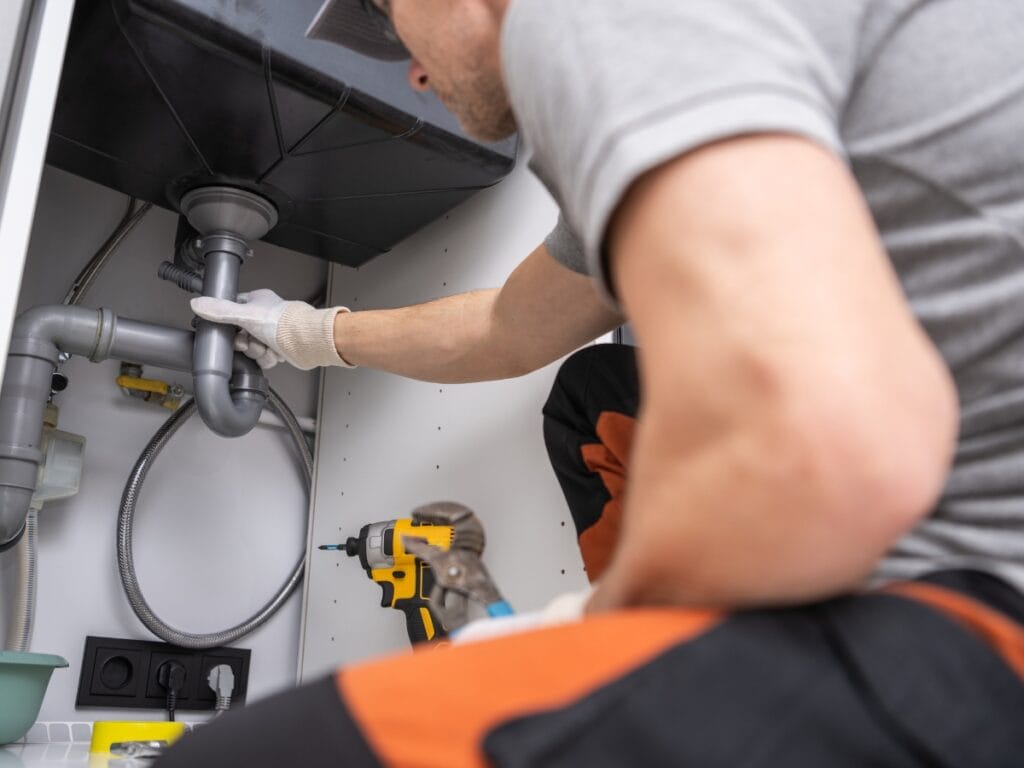
Preventing recurring drain clogs starts with regular maintenance and a few smart habits that keep debris and buildup from forming inside your pipes. Simple steps like flushing drains with hot water, using natural cleaners, and installing drain strainers can go a long way in preventing issues before they start. These small tasks reduce your reliance on chemical products and help extend the lifespan of your plumbing system.
Creating a consistent maintenance routine ensures that grease, soap, and hair never have the chance to accumulate. While DIY care is helpful, it’s also important to recognize when the issue may require professional attention to avoid long-term damage.
What Are Effective DIY Drain Cleaning Methods?
One of the most reliable at-home methods for maintaining clear drains uses common household ingredients. Pour a cup of baking soda followed by a cup of white vinegar down the drain, let it sit for about 15 minutes, then flush with hot water. This natural reaction helps dissolve soap residue and light grease without damaging pipes. This eco-friendly method is ideal for light maintenance but won’t remove heavy buildup or clogs caused by tree roots, grease rings, or mineral scale. Regular use can, however, keep your drains flowing smoothly between deeper cleanings.
How Do Drain Strainers Help Stop Debris from Entering Drains?
Drain strainers act as the first line of defense against recurring drain clogs. By catching hair, food scraps, and small debris before they enter the plumbing system, strainers reduce the chances of buildup in sinks and showers. Choosing stainless steel or silicone strainers makes cleaning easy, and emptying them after each use keeps drains clear. This simple addition prevents a significant amount of debris from ever reaching your pipes, lowering the risk of both surface clogs and deeper blockages.
Why Is Proper Grease Disposal Crucial for Preventing Kitchen Clogs?
Pouring grease or oil down the drain is one of the leading causes of recurring clogs in kitchen sinks. When these fats cool, they harden along pipe walls, trapping food particles and forming thick, sticky buildup. Instead, pour cooled grease into a disposable container and throw it away in the trash.
This small change in habit can dramatically reduce the likelihood of grease-based clogs and help your pipes stay clean longer.
How Often Should You Perform Routine Drain Flushing?
Flushing drains with boiling water every couple of weeks helps melt away small layers of grease and soap residue. This habit keeps your plumbing system clear and can highlight problem areas before they become serious. If water still drains slowly after flushing, it’s a sign that a more thorough cleaning may be needed.
When Should You Consider Using a Water Softener to Reduce Mineral Buildup?
If your home has hard water, you may notice mineral spots on fixtures or scale inside appliances. Installing a water softener helps reduce calcium and magnesium levels, which prevents these minerals from accumulating in your pipes. Over time, this minimizes the formation of scale-related clogs and helps water flow freely.
By combining natural cleaning habits, preventive hardware, and regular maintenance, homeowners can significantly reduce the risk of recurring drain clogs. Consistency is key—these small actions, done routinely, can prevent major plumbing issues and keep your home’s drains running smoothly.
When Should You Call a Professional for Recurring Drain Clog Solutions?
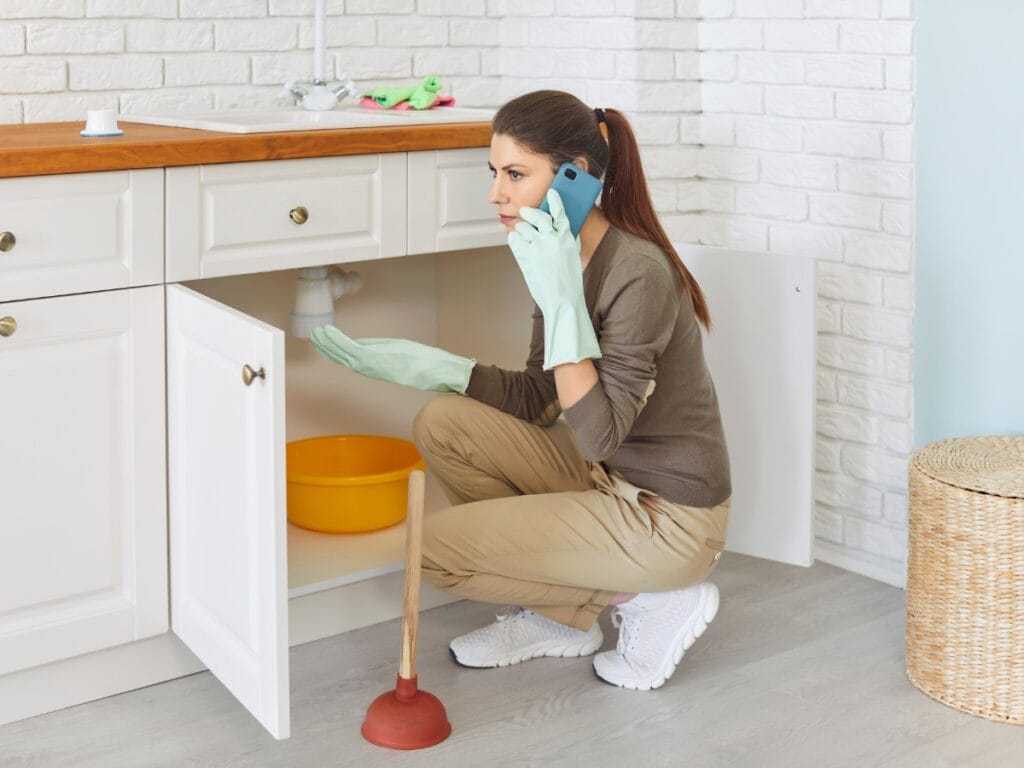
If you’ve tried every home remedy and your drains keep clogging, it’s likely time to bring in professional help. Recurring drain clogs often point to deeper issues such as pipe corrosion, mineral buildup, or root intrusion that can’t be fixed with simple plunging or baking soda mixtures. Ignoring these signs can lead to leaks, backups, or costly water damage.
A timely inspection by a plumbing expert ensures that the real cause is identified and addressed before it worsens. Recognizing the warning signs early can save you from unnecessary repairs and long-term pipe damage.
What Are the Signs That DIY Methods Are Not Enough?
When you’ve flushed your drains with hot water, used natural cleaners, or tried plunging and still experience slow drainage or blockages within a few days, the problem runs deeper than surface buildup. Other signs include persistent gurgling sounds, recurring foul odors, or water backing up into sinks and tubs. If you notice damp patches in your yard or an unexplained increase in your water bill, it could also mean there’s a leak caused by pressure buildup from repeated clogs. At this stage, DIY fixes won’t solve the issue and could make it worse by pushing debris further into the line.
How Can a Professional Sewer Camera Inspection Diagnose Hidden Problems?
Professional plumbers use sewer camera inspections to locate the exact cause of recurring drain clogs without digging up your yard or removing flooring. A small, waterproof camera is inserted into the drain, transmitting live video of the pipe’s interior. This allows technicians to identify cracks, root intrusion, misaligned joints, or grease buildup with pinpoint accuracy. By seeing what’s inside the pipe, professionals can recommend the most effective repair or cleaning method for lasting results.
What Are the Advantages of Professional Hydro Jetting for Stubborn Clogs?
Hydro jetting is one of the most effective professional methods for clearing recurring drain clogs. It uses high-pressure water streams to clean the entire interior surface of your pipes, blasting away grease, soap scum, mineral scale, and even small roots. Unlike chemical cleaners or standard snaking, hydro jetting doesn’t just create a temporary opening—it removes the residue that causes buildup to reform. This restores your pipes to nearly original condition and helps prevent future clogs.
How Does Drain Snaking or Augering Work for Recurring Blockages?
For localized or moderate clogs, a professional may use a drain snake, also known as an auger. This tool breaks apart or hooks onto obstructions, pulling them out or pushing them through the line. It’s especially useful for removing compacted hair, debris, or small root clusters that are close to the drain opening. While snaking can provide immediate relief, it’s often paired with other treatments like hydro jetting or pipe repair for a more permanent fix.
When Is Pipe Repair or Replacement Necessary to Stop Recurring Clogs?
If an inspection shows that your pipes are cracked, corroded, or collapsed, repair or replacement becomes necessary. Damaged sections can trap debris and restrict flow, causing clogs to reappear no matter how often they’re cleaned. Modern trenchless pipe lining offers a long-term solution by reinforcing the inside of existing pipes without major excavation. This restores structural integrity and eliminates the underlying cause of recurring drain clogs while extending the life of your plumbing system.
What Makes JW Plumbing Pros the Trusted Choice for Drain Cleaning in Northwest Georgia?
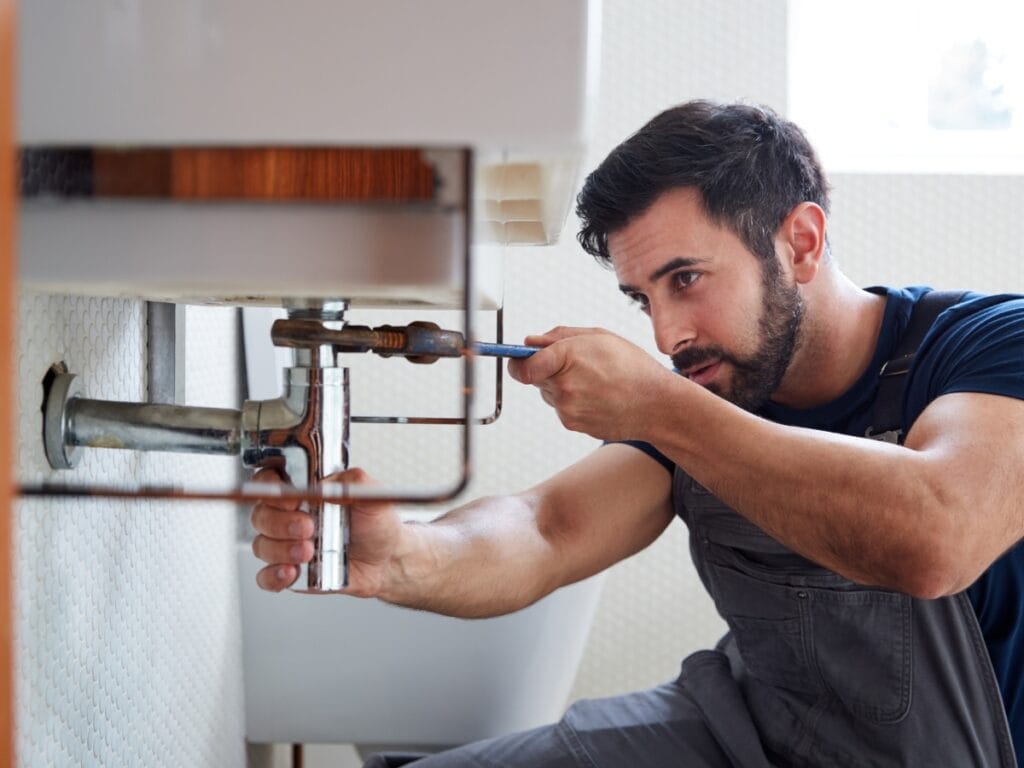
Recurring drain clogs are a common issue for homeowners in Northwest Georgia, where hard water, tree root intrusion, and aging pipes often combine to cause persistent blockages. JW Plumbing Pros has years of experience addressing these exact challenges. Our technicians understand the region’s soil conditions, water composition, and infrastructure, allowing for faster and more accurate diagnosis.
By pairing local knowledge with advanced tools like high-pressure jetting systems and inspection cameras, we deliver long-term solutions rather than temporary fixes. Transparent pricing and dependable workmanship have earned us a reputation as a trusted resource for keeping household plumbing systems running smoothly.
How Does JW Plumbing Pros Address Recurring Drain Clogs Differently?
Instead of relying on surface-level fixes, JW Plumbing Pros begins each job with a detailed camera inspection. This step reveals the root cause of the issue, whether it’s grease buildup, mineral scaling, or cracks in underground pipes. Identifying the exact source prevents guesswork and allows for targeted repairs that stop the problem from coming back. This diagnostic-first approach ensures homeowners don’t waste money on short-term solutions. By treating the underlying cause of recurring drain clogs, our process restores full water flow and helps protect your plumbing system for the long run.
What Professional Services Help Prevent Future Drain Clogs?
Preventive maintenance is one of the best ways to avoid the frustration and expense of repeat clogs. JW Plumbing Pros offers solutions such as scheduled hydro jetting, enzyme-based line treatments, and periodic pipe inspections. These proactive measures remove buildup before it hardens, keeping pipes clear and preventing pressure-related damage. Routine maintenance not only improves drainage but also extends the lifespan of your plumbing system. Regular service visits can reveal early warning signs, allowing minor issues to be addressed before they develop into major blockages.
How Are Emergency Drain Problems Handled in Northwest Georgia?
When a severe backup occurs, time is critical. JW Plumbing Pros provides prompt response for emergencies such as overflowing sinks, toilets, or floor drains. Our local team is equipped to quickly assess the cause, stop further damage, and restore normal function. Because we’re based nearby, homeowners can expect efficient scheduling and faster service compared to out-of-area providers.
What Do Customers in Northwest Georgia Say About JW Plumbing Pros?
Local homeowners consistently highlight our thorough inspections, professional attitude, and lasting results. Many reviews mention how previous plumbers provided only temporary relief, while our methods resolved the issue completely. Projects involving complex root removal, heavy grease deposits, or mineral blockages often end with restored flow and pipes performing better than before. By focusing on accuracy, prevention, and customer trust, JW Plumbing Pros continues to stand out as a reliable choice for resolving recurring drain clogs throughout Northwest Georgia.
How Do Different Types of Recurring Drain Clogs Require Specific Solutions?
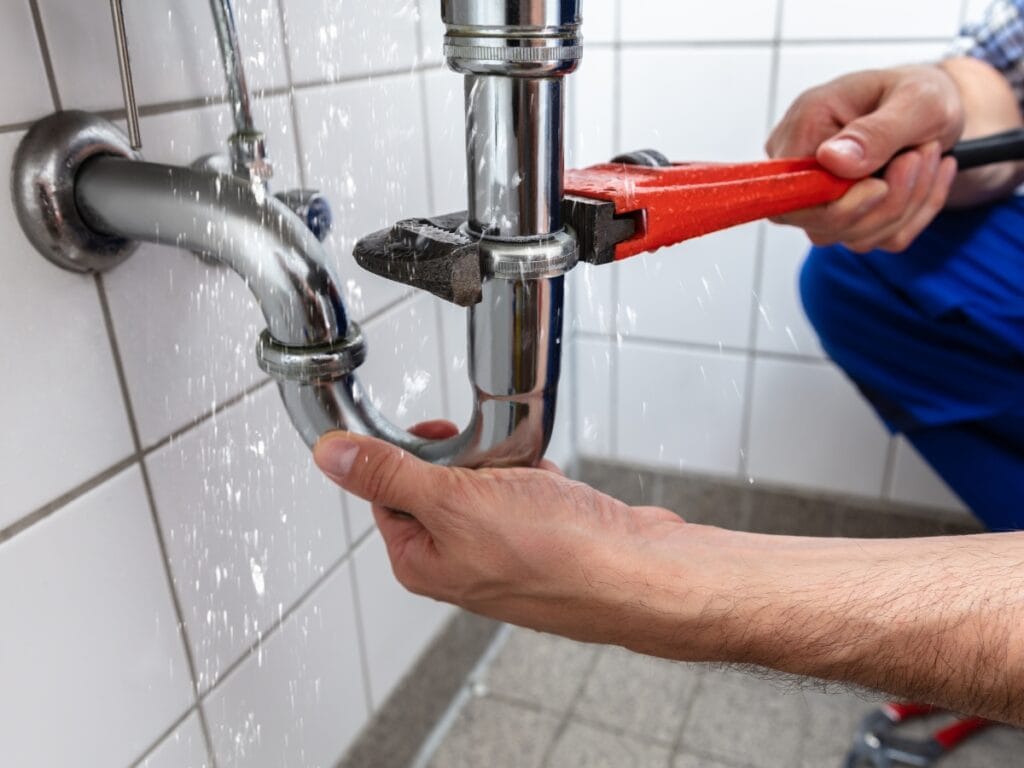
Not all drain clogs are created equal. Each type develops from different materials, conditions, and habits, which means the solution has to be just as specific. Kitchen grease buildup, for example, requires a very different approach from hair and soap scum in bathroom drains or tree roots invading sewer lines. Treating the wrong way can make the issue worse or only provide temporary relief.
By identifying the exact cause of recurring drain clogs, plumbers can select the right tools and methods to restore full flow and help prevent future blockages. The right approach also protects your pipes from unnecessary wear and ensures repairs last longer.
What Causes and Solutions Are Specific to Kitchen Sink Clogs?
Kitchen drains are especially prone to recurring clogs caused by grease, fats, and food particles. As these materials cool and solidify, they cling to the pipe walls, narrowing the passage over time. The most effective solution for this type of buildup is hydro jetting, which uses high-pressure water to strip away grease layers and food residue.
Once the line is clear, simple maintenance habits can keep it that way. Running hot water after washing dishes and using a mesh drain strainer to catch scraps helps prevent grease from re-solidifying inside the pipes.
How Are Bathroom Drain Clogs from Hair and Soap Scum Effectively Cleared?
Bathroom drains typically clog because of hair tangling with soap residue. Over time, these materials form a thick, sticky mat that restricts water flow. Mechanical snaking is the most direct way to remove the obstruction, breaking apart hair clusters deep in the drain.
After the clog is cleared, applying an enzyme-based cleaner every few weeks helps dissolve residue before it hardens again. Regularly cleaning your shower or sink strainer also goes a long way toward preventing recurring blockages.
What Are the Challenges of Main Sewer Line Clogs Caused by Tree Roots?
Tree roots are one of the toughest causes of recurring drain clogs. They can enter sewer lines through small cracks or joints, then expand as they absorb moisture, eventually creating a dense web that traps debris. Standard snaking often can’t fully remove roots, which is why professionals typically use a combination of root-cutting tools and hydro jetting.
In some cases, trenchless pipe lining is used to seal existing cracks, preventing roots from growing back into the system. Addressing these clogs quickly is crucial because root intrusion can lead to complete pipe collapse if ignored.
How Does Hard Water Affect Different Drain Types?
Hard water, common in many parts of Georgia, causes mineral deposits to form inside pipes. In kitchen drains, minerals mix with grease and food residue to create hardened rings. In bathrooms, they bond with soap scum, forming rough surfaces that trap debris. Installing a water softener helps prevent new scale from forming, while periodic professional cleaning removes existing buildup.
Why Are Toilet Clogs from Non-Flushable Items Difficult to Prevent?
Recurring drain clogs in toilets are often caused by flushing non-degradable materials like wipes, cotton swabs, and sanitary products. These items do not break down in water and can become lodged deep in the trap or sewer line. The best prevention is simple awareness—only flush waste and toilet paper. Occasional snaking may still be needed to remove deeper obstructions and keep water flowing freely.
By understanding the cause behind each type of clog and applying the right solution, homeowners can minimize future problems and protect their plumbing from unnecessary strain.
What Are the Best Practices for Long-Term Prevention of Recurring Drain Clogs?
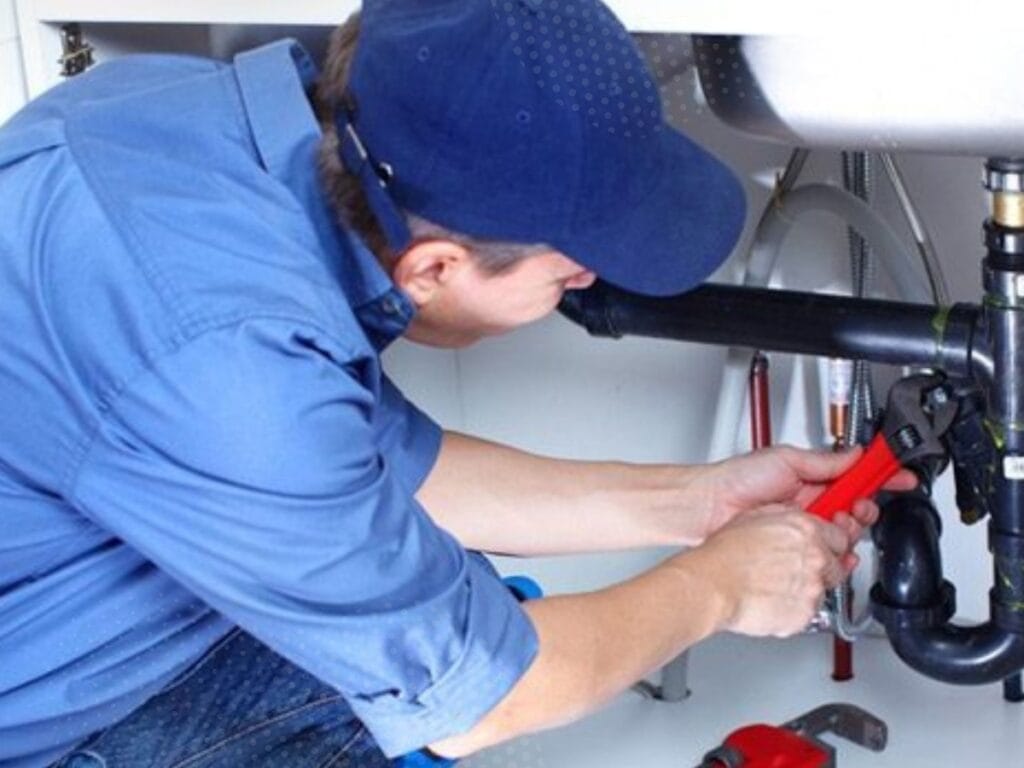
Preventing recurring drain clogs starts with consistent maintenance and everyday habits that protect your plumbing system. A balanced approach that combines routine professional cleanings with mindful home care keeps drains flowing smoothly and reduces the risk of emergency repairs. Staying proactive also helps extend the lifespan of your pipes and ensures reliable drainage throughout the year.
How Can Regular Professional Drain Cleaning Extend Pipe Life?
Professional drain cleaning plays a crucial role in preventing buildup that causes recurring drain clogs. Scheduling hydro jetting every year or so removes grease, soap residue, and mineral deposits before they have a chance to harden. This process not only keeps your pipes clear but also prevents corrosion and early wear. Regular inspections during cleaning can also reveal developing issues like small cracks or root intrusion before they turn into costly repairs.
What Role Does Proper Waste Disposal Play in Preventing Clogs?
One of the most effective ways to prevent clogs is to be mindful of what goes down your drains. Grease, oils, and food scraps belong in the trash, not the sink. In bathrooms, only toilet paper should be flushed—wipes, cotton swabs, and hygiene products can cause serious blockages. By keeping solid and sticky substances out of your plumbing, you eliminate the main causes of recurring drain clogs right at the source.
How Can Homeowners Monitor Their Plumbing System for Early Signs of Clogs?
Catching a clog early can make all the difference. Watch for slower drainage in sinks or tubs, gurgling sounds when using fixtures, and unpleasant odors rising from the drain. These are often early warnings of buildup or partial obstructions. A quick flush with hot water or a gentle enzyme-based cleaner can sometimes restore normal flow, but if the issue returns, it’s time for a closer inspection to prevent a full blockage.
What Are Recommended Tools and Products for Ongoing Drain Care?
Simple tools can make ongoing maintenance much easier. Metal drain strainers stop hair and food from entering the pipes, while enzyme-based cleaners help break down organic residue without harsh chemicals. Keeping a small hand auger or drain snake on hand can also help with minor clogs before they worsen. For homes with hard water, installing a water softener helps prevent mineral scale that can constrict pipe flow over time.
How Does Seasonal Maintenance Help Prevent Recurring Drain Problems?
Seasonal maintenance is another important layer of prevention. Conducting inspections in the spring and fall helps address changes in soil moisture and temperature that can affect underground plumbing. These checks often include camera inspections and hydro jetting to clear out early root growth or accumulated debris. By preparing your system ahead of seasonal changes, you reduce the risk of recurring drain clogs and unexpected plumbing issues.
Staying consistent with both daily care and professional maintenance ensures your drains remain clear and efficient year-round. A preventive approach protects your home, reduces repair costs, and keeps your plumbing system performing at its best.
Conclusion
Recurring drain clogs are more than just a nuisance—they’re often a symptom of a larger issue within your plumbing system that requires a professional diagnosis. At JW Plumbing Pros, we don’t just clear the immediate blockage; we identify the root cause and provide a lasting plumbing solution to prevent the problem from returning. Stop dealing with the frustration of constant clogs. Call 770-635-5159 or request your free quote online today. Let our experts restore your peace of mind and keep your water flowing smoothly.
